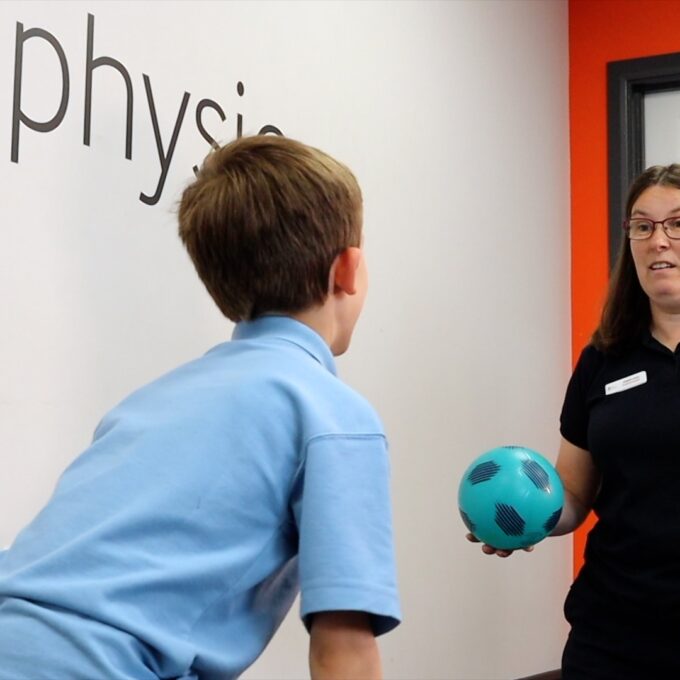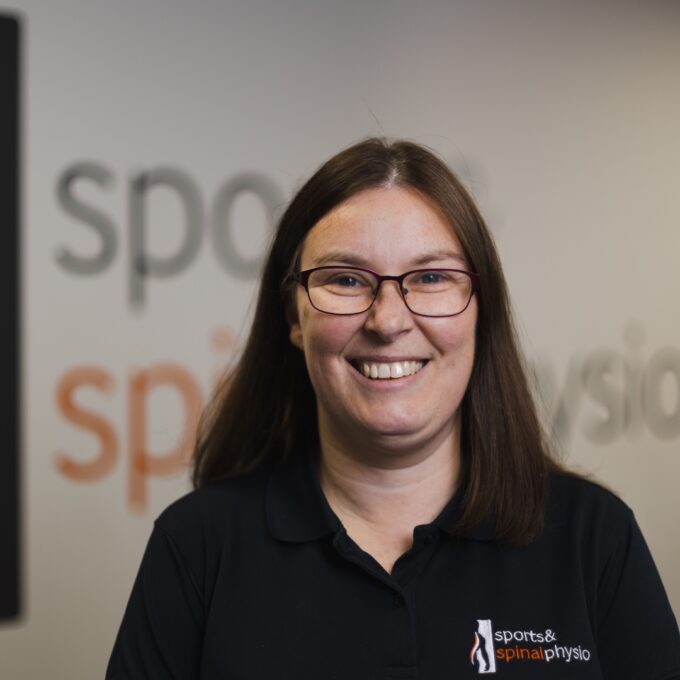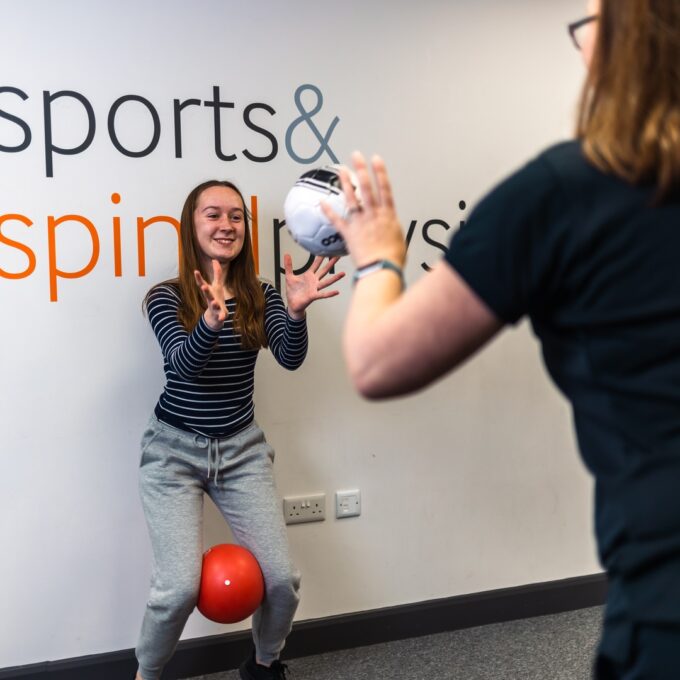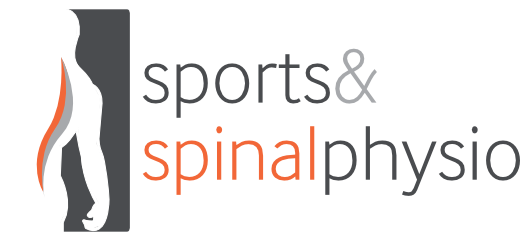Children’s Physiotherapy
What is it?
Children’s Physiotherapy is a specialised area of Physiotherapy targeting the unique needs of babies, children and adolescents. A child’s body systems (including musculoskeletal and neurological systems) are different to an adult’s as they are still developing- they are NOT simply mini-adults and therefore shouldn’t be treated as such.
The stage of development that your child is at should always be taken into account.
Our Children’s Physiotherapist is a member of the Association of Paediatric Chartered Physiotherapists and has worked with children since 2001.

What ages does our Children’s Physiotherapist see?
From birth – 16 years.
Pre-teenage children will be seen by our Children’s physiotherapist.
The adolescents can also be seen by the team’s other highly-skilled Physiotherapists as they also have expertise for this age-group. We work as a team and aim to get the right professional on board for each situation and can always ask advice from other members of our team to ensure the best care is given.

What conditions are commonly seen?
(this is not a fully comprehensive list, so please contact us if you don’t see what your child is having difficulty with.)
Babies and young children
Congenital foot anomalies
Developmental gross motor skill delay
Altered walking patterns (intoeing/outtoeing/ tiptoe walking)
Young children
Childhood musculoskeletal conditions (eg Perthes Disease)
Balance, co-ordination and gross motor concerns
Older children and adolescents
Child and adolescent lower limb conditions (eg Osgood Schlatter’s Disease, Sever’s Disease)
Injuries linked to sport and trauma
Any age group
Hypermobility
Juvenile Idiopathic arthritis
Persistent pain conditions
Post-trauma/fracture and post-orthopaedic surgery
Postural concerns, neck/back pain, scoliosis
What we can’t see
Unfortunately we are currently not able to treat Erb’s Palsy or children with Complex Neurological needs.
What does the treatment entail?
Treatment with children has to entail an element of fun whilst we aim for every child to reach their maximum potential. So be prepared for your child to be active in the session!
For the younger clients, developmental play activities will be used as the basis for treatment aiming to promote efficiency of movement and development of gross motor skills. If children have a known condition requiring work on range of movement and/or strengthening, an age appropriate exercise-based programme will be incorporated into their treatment.
For the older children and teenagers, treatment will be more exercise based and tailored to their activity/sporting needs.
Treatment may include taping and ‘hands on’ treatment (manual techniques).
Advice regarding safe sports’ participation, posture, footwear/insoles is often given.
Other professionals working ‘around’ your child/adolescent eg: school staff and sports coaches can also be given advice, when appropriate, to ensure that there is a consistent approach for the child/adolescent.

What should I expect?
At the initial assessment, thorough history-taking, analysis of movement and of gross motor skills will be carried out in order to identify the cause of the problem/symptoms. We will also consider the impact the problems/symptoms identified are having on your child’s (and their family’s) daily life. An individualised treatment plan will then be discussed making sure that it works for your child and their family situation.
Our children’s physiotherapist is a mum of two children, including a teenager, so fully appreciates the challenges that come along with family life, especially when trying to fit in additional things on top of schoolwork and clubs. She will always put the needs of your child first.
How many sessions over what time?
The number of sessions can vary greatly depending on the condition/concerns.
This will be discussed following the initial assessment and will be tailored for the goals being worked towards. If a block of treatment is needed this will typically take place on a weekly/fortnightly basis comprising of 6-12 sessions.
Ongoing review sessions periodically may be suggested, especially if your child is going through a rapid growth spurt or if they are returning to sport following an injury.
On occasion, assessment only, advice and onward referral is more appropriate than treatment.
Do I need a referral?
If you are self-funding, no referral is needed. It is helpful to bring copies of any relevant hospital reports to the initial assessment.
If treatment is being funded via an insurance company, a doctor’s referral is normally required by the insurance company.
Any questions/unsure if we can help?
If you have any questions or aren’t sure if we can help, just contact us and we will happily offer advice on what to do next once we have discussed your child’s specific needs/concerns.
Next Steps: Use one of our 4 options below to get started...
What Our Patients Say
Finally
If you are still considering what to do or just browsing why not download one of our free guides below.
